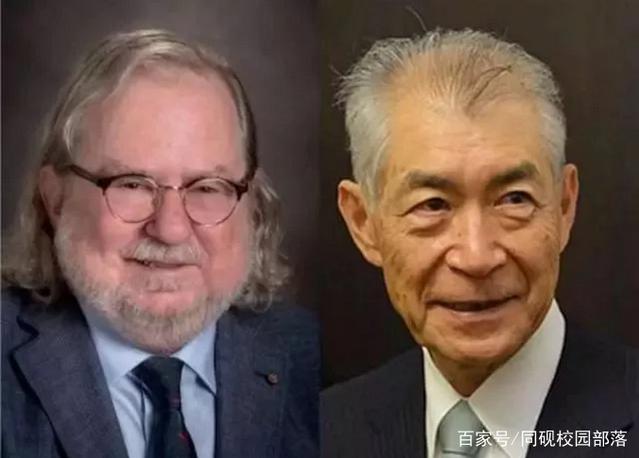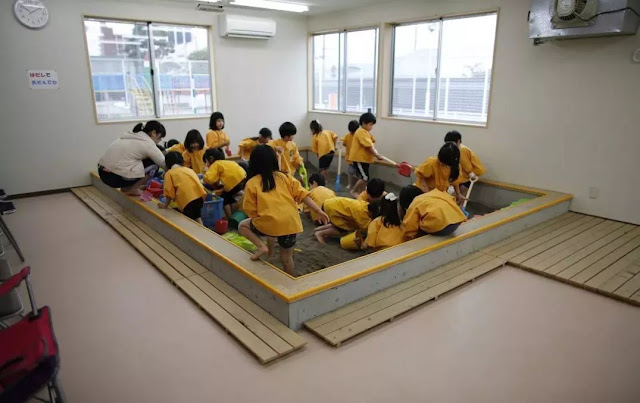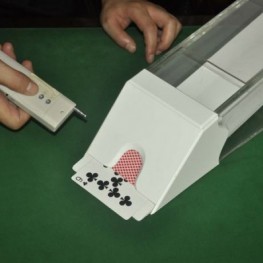なぜ日本人はいつもノーベル賞を受賞するのですか?これらの9つの教育方法は学ぶ価値があります
What made the Japanese always win the Nobel Prize for many years? The emphasis and respect for scientific research from the top to bottom, the inheritance and development of the "artisan spirit", and the enthusiasm for educational change, etc., are worth learning and thinking.
Winner of the 2018 Nobel Prize in Physiology, James P. Allison and Tasuku Honjo (right)
In 2001, Japan introduced the "Second Science and Technology Basic Plan", which is ambitious to say that it is necessary to take 30 Nobel Prizes in "50 years," from Japan to the international community. . Previously, in the 100-year history of the Nobel Prize, Japan, the world's economic power, had only nine winners.
From 2001 to 2018, Japan took one in an average year, 18 in 18 years, the planned time has not yet passed more than a half, has completed more than one-half of the target number, according to the rhythm of one year one prize , "50 years win 30 prizes" target, almost no suspense.
Tasuku Honjo is the 26th Japanese to win the Nobel Prize and the 5th Japanese to receive a physiology or medicine award. Japan surpassed Germany, the United Kingdom, and France, becoming the second largest “ big prize winner” after the United States, 23 of which were natural science awards.
The Japanese won the Nobel Prize for years, and they cannot do without the support of the Japanese government for the long-term stability of basic research. As early as 1995, the Japanese national assembly passed the Basic law on science and technology, and subsequently formulated several five-year plans. In January last year, the Japanese Cabinet reviewed and approved the Fifth Science and Technology Basic Plan (2016-2020). The plan proposes to build Japan into the “world's most suitable country for innovation” in the next 10 years.
The Japanese also have an admirable "artisan spirit." The so-called "artisan spirit" is to do only one thing in a lifetime, and to achieve the ultimate in this matter.
It is also particularly noteworthy that most of the Japanese Nobel Prize-winning scientists have a relatively good childhood, like to be close to nature, to explore nature,like to read,good at read, and parent to play an important role in enlightenment and guidance during their growth. .
- Contacting nature to create curiosity is the "origin" of scientific research
"When one is young, through contact with nature, create the initial and naive interest and desire to explore. This is a very important science enlightenment education and the way to produce a generation of science giants." Nobel, winner of the 2016 annual prize in physiology or medicine, Daisumi Yoshinori said.
Since childhood, the Daisumi Yoshinori like nature very much. Collecting insects is a big hobby. He is also the editor of the primary school science textbook. In his view, letting children fall in love with nature, fall in love with science, and have valuable curiosity about the world is the starting point for everything.
When I was a child, I was keen on making airplane models and semiconductor radios. In summer, I like fishing in rivers, catching fireflies and collecting insects, and walking in the field with a hand-held net is a day. pluck wild celery, Akebia, Myrica rubra, wild strawberry are able to experience the four seasons of nature.Looking up and seeing the stars in the sky makes it easy to identify the constellation, and the Milky Way is like a river on the ground. These were not thought of at the time, but today, as a researcher in molecular biology in the natural sciences, such an experience is the origin of everything. ”
When the Nobel Prize winner in Chemistry, Mr. Shimomura, talked about why he was on the road to science, he said: "I don't do research for application or any other benefit. I just want to understand why the jellyfish shines." It should be said that . Maintaining curiosity in nature and the world around it is the direct reason for leading Nobel laureates into the world of research.
In 1973, the Nobel Prize winner in physics, Yoshiaki Saki, had this sentiment: a person who came into contact with nature at an early age gave birth to the original, naive exploration interest and desire. This is a very important scientific enlightenment education. The road to a generation of scientific masters. should be cherished, carefully cultivated, motivated and cared for.
From the speeches and writings of several winners, it is obvious that reading is important to their growth, and several of them have strengthened their life direction because of reading.
In 2002, Nobel Prize in Physics, Masatoshi Koshiba, frankly stated in the book "I am not a good student". When he was in elementary school, the class teacher Jin Yingfu sent him a book - how Einstein's "How Physics Produced" made him Great interest in physics and eventually embarked on the path of physics research.
Fukui Kenichi, winner of the Nobel Prize in Chemistry in 1981, wrote in "The Straight Words Education": "In my entire junior high school and high school age, the most influential to me was Fabre, who I can call the teacher of the soul, It has played a very important role in my life. "
In 1994, Nobel Prize winner Kenzaburo Oe had the habit of copying books From childhood. He confessed in his book: "To write a lot of notes for reading, and to continue this way of reading, I have achieved what I am here today."
Family education focuses on cultivating children's self-reliance
If reading is an intrinsic factor in the success of Nobel winners, good family education is an essential external condition.
The 2001 Nobel Prize in Chemistry, Ryoji Noyori, said that his determination to study chemistry is the influence of his father. At the age of 12, his father took him to a company's new product show. A new yellow nylon wire extracted from water, air and coal made him feel that "chemistry is amazing", and since then he Life is inseparable from chemistry.
Fukui Kenichi was influenced by his father to develop a habit of studying hard and thinking hard. He wrote in the book: "As for learning, parents have adopted a non-intervention attitude and have never said "to study hard". However, my family often hangs over the serious atmosphere that makes children want to learn involuntarily."
Like China, Japan has always attached importance to family education. The family pays attention to cultivating the child's self-reliance and instilling the idea of not relying on parents. After the Japanese students are admitted to the university, the tuition fees are the responsibility of the parents, but the living expenses outside the tuition fees must be earned by working on their own, otherwise they will be laughed at by the classmates and the society.
Numerous educational experiments,A large number of educational experiments to promote the connection between education and reality
In 2014, Haiyam, Japan, children playing in the indoor playground
Japanese education, like some Eastern countries,There are drawbacks such as indoctrination, re examination and so on.. However, Japan was influenced by the new education movement and pragmatic education before the Second World War, and the masses also carried out a large number of educational experiments, which greatly promoted the connection between education and real life.
After the war, Japan also absorbed the educational theories and experiences of Western developed countries in the process of continuous exploration. For example, kindergartens and elementary schools in Japan do not only emphasize knowledge learn, but emphasize children's life experience. Compared with basic education, Japanese secondary schools have a tendency to test. That were once more serious, but high school has a credit system. The student relatively large freedom of choice course.
Japan's basic education attaches great importance to carrying out a variety of extracurricular activities. Many schools mobilize nearly all the teachers in the school to participate in the guidance of extracurricular club activities, and even some student activities (such as the National High School baseball Tournament, the National Student and Children's Invention Exhibition, etc.) Become a grand event of concern to all citizens.
Japan has also established a number of off-campus educational institutions (such as youth homes) to expand the horizons of young people. The company is also keen to organize various science and technology competitions and other activities to stimulate children's creative enthusiasm. All these systems or measures help students to form a wide range of interests and hobbies, and lay a solid foundation for future career development.
Scientific research requires sensibility and intuition, and the best time to cultivate this sensibility and intuition is a boyhood that is full of mud.
According to expert analysis, Japanese research universities have always turned their attention to the forefront of the world and closely integrated it with teaching. Japanese university professors are also engaged in the process of scientific research and The degree of freedom is quite high.
In Japan, university teachers are not afraid of being neglected or losing their jobs because have not produced scientific research results for a period of time. In the process of research, they are seldom disturbed by government and society, such as assessment and evaluation, and can devote themselves to research for a long time. The Japanese won the Nobel prize under this system.
Japan's science and technology infrastructure plan is not directly involved in management and review by the government, but by professional institutions. Scholars who receive program funding need to conduct research intensively. The research results are not assessed by the administrative department, but by academic peers.
“Japan has produced so many Nobel laureates, and it is not unrelated to Japanese scientists to focus on international exchanges.” Professor Li Zhongsheng, Ph.D. in Economics, Chiba University, Japan, in an interview with the media, Nobel Prize in Physiology or Medicine, 1987 The winner, Ligen Chuanjin, is a professor at the Massachusetts Institute of Technology. His scientific achievements were made in American laboratories; in 2000, the Nobel Prize-winning chemistry winner, Shirakawa Yuki, and the 2001 Chemistry Prize winner, Ye Yizhi, both at the American University. For further studies, we should aware of the latest research trends in their respective fields.
Second, provide a solid guarantee for Japanese scientists in first-class experimental conditions. Especially for disciplines such as physics, chemistry, and life sciences that emphasize experiments, first-class experimental conditions are particularly important, sometimes even decisive.
After Ryoji Noyori won award in 2001, the Japanese government allocated a special fund of 70 million US dollars to establish an advanced research center for experimental equipment. With its superb processing technology and solid industrial foundation, Japan provides world-class working conditions for scientists to carry out innovative research.
In addition to the guarantee of the scientific research environment, the consistent and diligent and tenacious work spirit of Japanese scientists is an important factor in their ability to quickly catch up with developed countries in Europe and the United States and even maintain world leading position. The free and independent research of Japanese researchers is also the key to the continuous development of research.
The channels and forms for Japanese university professors and research institutes to declare their projects are actually subject registration systems. a certain share of the funds will be allocated quickly to guarantee their research for several years.
Basic research is “the most favored” in university research
"In the 1980s, Europe and the United States often accused Japan of hitchhiking in basic research, so Japan put forward the policy of nurturing world-class researchers and achieved success to some extent." "Japan economic news" pointed out, "however, these can not get rid of the Asian countries to catch up. Japan needs to cultivate a large number of research talents. "
According to the paper data of the Institute of Science and Technology Policy of the Ministry of Culture, Ministry of Science and Technology of Japan, the number of second-tier universities after the best universities in Japan is very limited, and the trend of polarization is very obvious. In Europe and the United States, which are stronger than basic research, universities at this level are very active, and overall, the competitive environment is very fierce.
In general, the transformation of science and technology into productivity must go through the long process from basic research to applied research to development research. However, Japan was a relatively advanced technology-producing country. In order to catch up with the world's advanced level as soon as possible, it did the opposite. It took a strategy from the development of research, traced to the application research, and finally went deep into the basic research level. Significant results have been achieved. ”
The Japanese government and enterprises attach great importance to the investment in scientific research. The proportion of research funding to GDP is 3.67% (2007), which is the highest in the world. Although the research funding of the university accounts for only 18.3% (2006) of the total research funding, the structure of the university's research funding is completely opposite to that of enterprises and other scientific research institutions, and basic research funds account for the majority (about 55%). Basic research is a hotbed of infinitely close to the Nobel Prize.
Government and society respect for cultural education





















































